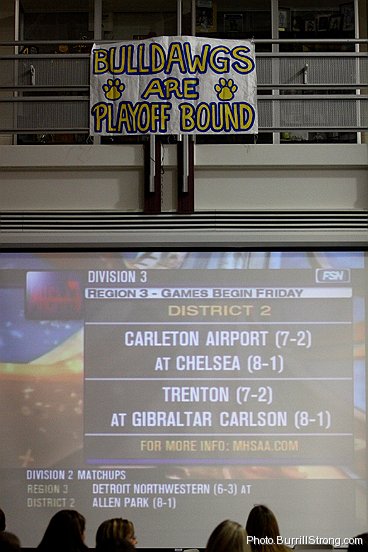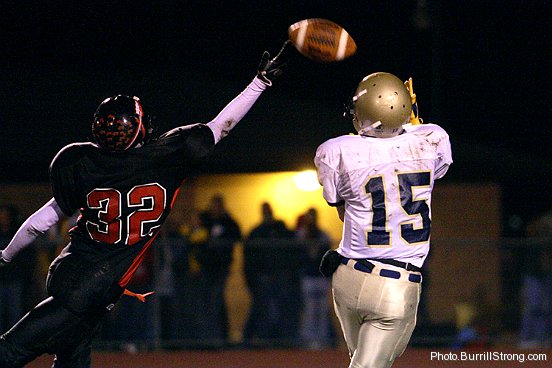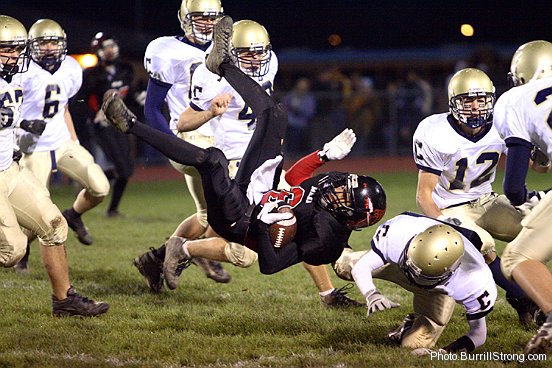Keep it going (22 October 2006).

Monthly Archives: October 2006
Photo of the Variable Time Period, vol. 20
In stride (20 October 2006).

Photo of the Variable Time Period, vol. 19
Whee! (20 October 2006)

Happy Winter Festive Occasion For All People!
Windmill Point Elementary School in Port St. Lucie, Florida, canceled its Christmas pageant. Why? Because it could be associated with Christmas.
The pageant itself, A Penguin Christmas, had no religious themes, overt or subtle; its subject matter featured characters such as Santa Claus, Rudolph, elves and, obviously, penguins. However, a district spokeswoman said many people associate those symbols with Christmas.
That, along with the pageant’s use of the word, was enough for the school to cancel the play on the grounds that its mention of the holiday may be offensive.
But take comfort: though both Halloween and Thanksgiving could be offensive, they are still safe to mention in school.
—
Highlights from the Palm Beach Post’s article:
“‘Any reference to a religious holiday has the potential to offend anyone who is not part of that particular persuasion.'”
“‘I feel like I have the principal that canceled Christmas.'”
“Windmill Point parent Heather Cowart, mom to third-grader Logan, said she was upset last year when Logan’s teacher demanded he not bring Santa cupcakes, candy canes or other Christmas-themed treats to a ‘holiday party.’ Even donations of canned goods to the needy had to be wrapped in newspaper, not traditional wrapping paper, Cowart said.”
“Last year Logan got in trouble for saying “Christmas” in class. Is that a bad word now?'”
“‘Everywhere in Florida, and probably the whole country, there is a heightened awareness to not be offensive to anyone,’ Karst said.”
The Tall House
The University of Michigan has released drawings of the proposed renovations to Michigan Stadium. Take a look before you continue reading.
My first reaction was one of surprise. The proposed structures are huge. I did not expect small additions, but the drawings are larger than I had imagined.
As structures, they are attractive. They are modeled after other classic structures on campus, like Yost Ice Arena, and as such they are good-looking.
But if I may be repetitive for a moment, they’re big. They’re extraordinarily prominent. In a relative sense, they are nearly as subtle as Oregon’s highlighter-yellow uniforms.
One of the great charms of Michigan Stadium is its simple understated design. From the street, the stadium is actually underwhelming; from the inside, the stadium is just a mass of humanity and the sky. The addition of those two major structures to the east and west sides would be not just an evolutionary renovation, but a major shift in the stadium’s character.
I am not opposed to any addition of structures, but this proposed addition would essentially introduce a new stadium. That sort of change should not be taken lightly, and it should not occur without thorough input from those who fill the seats on a regular basis. If the general fan base accepts this sort of proposal, then I will not quarrel with it; I would be wasting my breath. But if the regents forge ahead with their plan despite substantial opposition, then I will have a quarrel with the regents. This renovation should be approved by the fans who want to fill benches, not by the few who could afford the proposed suites.
—
The university says:
“In fact, since its construction by Fielding Yost in 1927, the Stadium has undergone many major changes and renovations. In 1949 it was expanded from 85,000 to 95,000 seats, and in 1956 it was renovated again to a capacity of more than 100,000. In 1957 the current press box was added. Each of these projects meant major changes to the appearance of the Stadium.”
Comparing simple capacity expansions to this renovation doesn’t work. The expansions changed the stadium by making it larger; from the inside, it was still a big bowl.
Love and Football
If you have fifteen minutes, listen to this segment of The Sports Inferno, a sports radio talk show on Detroit’s 1270 WXYT. It’s worth your time. It features Mike Valenti addressing the problems of the Michigan State University football program after MSU’s dismal fourth-quarter collapse against Notre Dame.
No, that description was too sterile. He did not address the program’s problems; he tore the program to shreds. It was not the dispassionate analysis of a media observer; it was the overflowing emotion of a passionate fan who happens to host a radio talk show. He had been getting more and more disgusted by the wasted potential and bad losses accumulated by the Spartans, and the devastating loss to Notre Dame finally brought him to a boil. A tangible, powerful, irrepressible boil.
So Valenti boiled. He ranted for fifteen minutes straight. His co-host tried to interrupt him when his voice began to fail, and he refused to stop. His co-host tried again a few minutes later when his voice became even more hoarse, and he very pointedly told his co-host to let him finish. He left no doubt that he would let no one stop him from saying what he needed to say.
Clearly, it was just that: a need. The depth of emotion in his voice and in his words demonstrated beyond any doubt that he did not simply want to express his opinions; he needed to speak his piece. He needed not just to speak his mind; he needed to speak his heart.
And it was his heart that spoke for fifteen minutes. That was unmistakable. He expressed his deepest outrage at the failings of the MSU football program, but he could not have done it out of anger. Anger will make a man do remarkable things, but ultimately, he did not speak in an effort to destroy the program; he shouted himself hoarse in an exhausting effort to expose every crevice of every destructive element within Michigan State football.
What brings a man to that point? Love. Valenti loves Michigan State football.
Some may hesitate to assign that emotion and action to football, either because it doesn’t seem to fit the violently competitive nature of the sport or because they believe sports aren’t important enough to love; neither is true. A shallow fondness does not cause a man in Valenti’s position to break character, shut down his co-host, expose raw emotions and hit every last nerve he could hit; mere pleasant associations do not evoke a passionate point-by-point denunciation of a program’s failings, from the head coach down to the last walk-on player. It’s not the love one person can feel for another — such love should be on an entirely different level — but as Valenti demonstrated, it is love, and in some ways it can be nearly as deep.
That love was deep enough for Valenti to stand by the Spartans through disappointment after disappointment, and it was deep enough that he could no longer bear to watch that football program — his football program — self-destruct. He had to speak, he had to do what he thought would help salvage the program, and he did so with a level of passion not often witnessed in any venue for any reason. He did not observe the program’s failings as a bystander; he experienced them as offenses against a close personal friend. That has to be love. Any lesser word would be inadequate in the face of the emotion in his vehement words and in his failing voice.
And that is what makes college football such a beautiful sport.
Just wait until the sequel: Nefarious Needle
Though I had a hard time believing it, there is a real movie called Evil Bong. This is not a spoof.
“Synopsis: A vintage bong with mysterious powers entraps some stoner college students. When they are seduced by deadly strippers, only Jimbo (Tommy Chong), the bong’s original owner, can save them.”
(Thanks to js for the title and synopsis.)
The past is now, vol. 3
03 May (2005)
Apparently the BCS Can Perfect Neither Means Nor Ends, or
In Other News, the BCS and the NCAA Filed For Divorce, Citing Irreconcilable Differences
These statements were recently brought to my attention:
“The BCS was never designed to pick the national champion.”
Robert Hemenway
Chairman, NCAA Board of Directors
Friday, 29 April 2005
“The Bowl Championship Series was created … (to provide) a guaranteed matchup between college football’s top teams in a true national championship game.”
BCS media guide
I’m slightly confused. The BCS believes the C in its name; the BCS believes it was created to crown a national champion. (It also believes it can accomplish that goal. But that’s another topic.) But it seems some members of the NCAA believe it had no such intention.
In one sense, that’s just wrong. All I remember hearing was that the BCS, through the many incarnations of its formula, would match the top two teams in its championship game. I don’t know why the word “championship” would be plastered all over the system if it didn’t intend to produce a champion.
At the same time, it seems clear that Mr. Hemenway feels the BCS is not capable of producing a legitimate champion. And I’m sure there are many others within the NCAA who are beginning to share that opinion, if they don’t already.
What we have, then, is a system (the BCS) that has been shown to be incapable of meeting its primary goal, and an organization (the NCAA) that must continue to work with that system despite a continued erosion of confidence — and, some would say, reason for confidence — in the system.
Isn’t it funny that the old two-poll system produced less controversy than does the BCS? Perhaps that’s because the polls did not lay claim to more authority than they had. The AP poll champion was the AP champion; the USAToday/ESPN (Coaches) poll champion was the Coaches champion. And most years, they agreed on the number one team. But the BCS champion, we’re told, is THE champion, yet it gives us little reason to believe that claim. The BCS is not omniscient in ranking football teams; the two polls never claimed to be. The BCS is a failure because its stated goal is simply not possible.
So tell me again: if the BCS excels only at producing disagreement and controversy, and if so many people, including some within the NCAA, believe it doesn’t work, then why must we continue to suffer under its rule?
It’s not my fault he took advantage of my lack of self-control and maturity!
On Saturday, Miami and Florida International decided to dedicate their game to Don King. In the middle of the third quarter, a huge brawl erupted; to end the melee, a number of police officers were forced to intervene. The immediate result was the ejection of thirteen players; the end result was the suspension of thirty-one players.
Most interesting in this incident was not the fight — after the Pistons/Pacers fight, these things are fairly pedestrian — but the attitudes of the Miami players. The general consensus seems to be that FIU players both did their part to provoke Miami and started the fight itself, and they should be held responsible for their actions. But to listen to the Hurricanes, you’d think they were innocent bystanders, not full participants.
“It’s something they started, and our guys finished it,” Kyle Wright proclaimed. “It’s not our fault,” Kenny Phillips insisted; “Whatever it was, it wasn’t us.”
Even forgetting Miami’s sordid thug history, consider recent history. While FIU delivered the first blows in the Florida fracas, Miami’s behavior continues to contradict its public image improvements. Even as the university seeks to clean its football reputation, the Hurricanes have been involved in two fights in the last seven games, and three in the last year. They even had a near-fight in another game this season; prior to their game at Louisville, Miami players made a grand show of stomping on the logo at midfield.
Further, their behavior in the FIU game hardly demonstrated maturity. After a short touchdown pass, James Bryant pointed at the FIU bench and took a theatrical bow toward the stands. His behavior drew a well-deserved flag, and it also likely inflamed the apparently volatile FIU players even more.
If this had been an anomaly, Miami would have room to plead innocent. But three fights and one near-fight in one year do not allow the football program to claim higher moral ground. The character of the program and its players is shown on the field; on Saturday, the Hurricanes showed something.
Whatever it was, it certainly wasn’t character.
—
On that theme, here’s the startling statement of the day, from a USA Today article:
“Why is it bad? I really don’t understand. I think it’s good. It gets people to watch football more,” said Sara Cass, 19, a Miami student from New York City. “I mean, maybe it wasn’t the best way of approaching it, but a spark has been created and maybe this will help the team.”
In every game, be this our aim, V-I-C-T-O-R-Y: week 8 vs. Ann Arbor Pioneer
Chelsea High School Football record through week 8: 17-7 (1-2 week 8; 15-6 SEC).
Near the end of last week’s victory over Dexter, it seemed Adams, the backup quarterback forced into the starting role, grew comfortable in the job and would be able to lead the offense into the playoffs. This was a good sign for the team.
Well, that’s not quite true anymore. Soon after the Dexter game, Adams was sidelined, too. So, with only two weeks left in the season, the Bulldogs were left with their top receiver, Schwarze, taking snaps. That’s right, the player best able to catch the ball was forced to throw the ball as the quarterback, a position he hadn’t played since middle school.
On top of that, to have a backup on the roster, the varsity pulled up the JV’s starting quarterback — except the JV’s first starting quarterback had sustained an injury in a previous game. The varsity’s move to keep two quarterbacks on its roster took the JV down to its third quarterback.
So, to recap, the varsity lost two quarterbacks to injury and has its top receiver under center as its third starting quarterback, while the JV lost one quarterback to injury and another to the varsity, thus leaving them on their third quarterback.
Oh, and one other injury note: in the second quarter of this week’s game, the varsity’s starting center left the game with a season-ending injury. So now it’s the second center snapping to the third quarterback. The Bulldogs are becoming a mathematical equation!
Got it? Okay, then, let’s get to the games.
The freshmen lost a close game; at the end of the third quarter they trailed by only one point.  The JV had a miserable first half, but they staged a comeback in the second half. Really, just the fourth quarter. A late fumble ended the comeback bid, but considering the disastrous start — 14-0 before snapping the ball once on offense — and the third starting quarterback this season, it was a fine effort.
As detailed above, the varsity also entered the Pioneer game with two quarterbacks in street clothes. The game was a bit of a nailbiter; both teams scored on their opening drives, and then the defenses took over. But Chelsea managed to score 20 points, and Pioneer managed to commit too many turnovers; Pioneer failed to finish a late drive, and Chelsea claimed a six-point victory.
In his first game as quarterback, Schwarze contributed an admirable performance.  Many of his passes were accurate, and his presence in the pocket was far better than adequate. And his athletic ability — think small-town Steve Breaston – allowed him scramble for substantial yardage when he was in trouble.
Taking a top receiver out of the defensive backfield hurts, but as he becomes more comfortable in his new position, the offense should be just fine. It may be a different offense from the one that started the year under Seelbach’s leadership, but it should be fine. Even with its third quarterback and second center in the middle of it.
